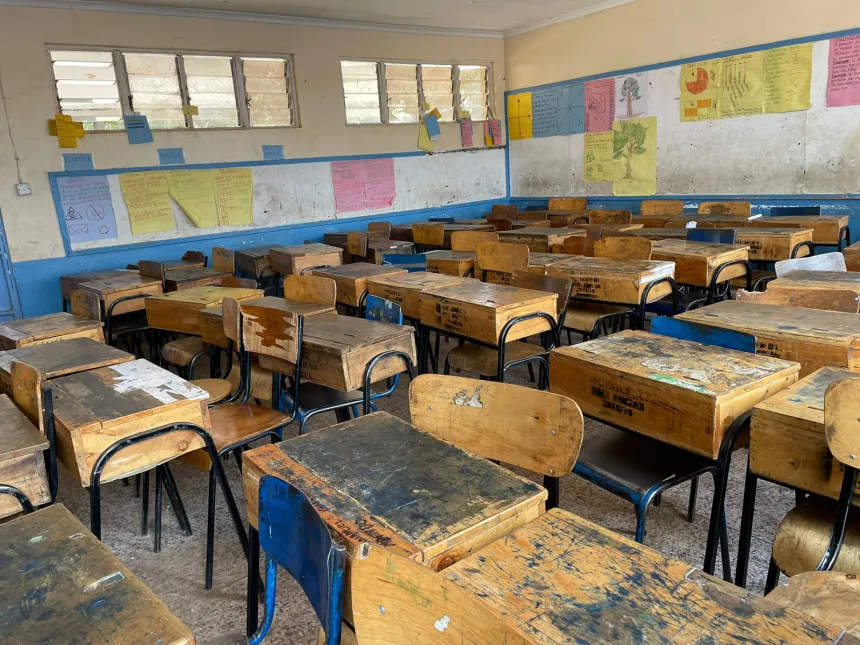The government’s delay in submitting capitation funds has severe implications for parents, teachers, and schools in Kenya. This delay has resulted in significant financial constraints, affecting the operations of schools and the quality of education provided.
Schools are struggling to pay utility bills, such as water and electricity, due to the delayed disbursement of funds. Many schools owe suppliers between Ksh20 million and Ksh70 million, which has led to accumulated debt. The Kenya Secondary Schools Heads Association (KESSHA) has called on the National Treasury and the Ministry of Education to clear Ksh64 billion in capitation arrears accumulated over the past four years.
The delay in capitation funds has also caused operational challenges for schools. They are finding it difficult to maintain their operations, with some principals facing embarrassment from suppliers demanding payment. This situation has created uncertainty and frustration among parents, teachers, and students.
Parents are seeking financial aid from other sources, adding to their already heavy burden. The delay in capitation funds may negatively impact learners, especially those in informal settlements who rely on bursaries for their education. Limited access to education can have long-term consequences, affecting not only individual students but also the broader community.
The government has assured schools that third term capitation funds would be released within the week, attributing to the delay to the government’s debt servicing obligations.
ALSO READ:
The timely release of capitation funds is crucial for the smooth operation of schools and the provision of quality education. It is essential for the government to prioritize the disbursement of these funds to mitigate the challenges faced by schools, parents, and students. By doing so, the government can help ensure that all students have access to the education they deserve, regardless of their financial situation.
School heads hae fees are paid, disrupting their education and potentially impacting their academic performance.ve no choice but to send learners home due to unpaid fees, a situation that affects many students and their families countrywide. Financial constraints play a significant role in this issue, as many families face difficulties in paying tuition fees. The burden of high fees, coupled with additional costs such as textbooks, uniforms, and extracurricular activities, can be overwhelming. When students are unable to pay their fees, schools may resort to sending them home until th
The lack of access to sufficient financial aid, scholarships, or student loans exacerbates the problem. Many students who come from low-income backgrounds may not have the necessary resources to afford the fees, making it challenging for them to continue their education. This issue highlights the need for more comprehensive financial support systems to ensure that all students have access to quality education, regardless of their financial situation.
Some schools rely heavily on tuition fees to operate, which can create a difficult situation for students who are unable to pay. When students can’t pay their fees, the school may not be able to sustain their enrollment, leading to exclusion or being sent home. This approach can have negative consequences, such as widening the gap in academic achievement between students from different socio-economic backgrounds.
ALSO READ:
Baringo honey trader wins Sh1 million Coca-Cola prize, plans to pay son’s university fees
Furthermore, schools might prioritize students who have paid their fees, leading to those who haven’t being excluded from certain activities or opportunities. This can create a sense of inequality and unfairness, potentially affecting students’ self-esteem and motivation. It’s essential for schools to consider the impact of their policies on students who are struggling financially and explore alternative solutions that support all students, regardless of their financial situation.
The consequences of sending learners home for fees can be far-reaching. Disrupting their education can lead to missed opportunities, lower academic achievement, and a higher likelihood of dropping out. It’s crucial for schools and governments to work together to address these issues and ensure that all students have access to quality education. Some schools and governments are taking steps to provide more financial support and implement policies that promote inclusivity and equality.
By providing more financial support and implementing policies that ensure all students have access to quality education, schools and governments can help mitigate the negative consequences of unpaid fees. This can include offering scholarships, financial aid, and flexible payment plans to support students who are struggling financially. Ultimately, every student deserves access to quality education, regardless of their financial situation. By working together, we can create a more inclusive and supportive educational environment that benefits all students.
By Hillary Muhalya
You can also follow our social media pages on Twitter: Education News KE and Facebook: Education News Newspaper for timely updates.
>>> Click here to stay up-to-date with trending regional stories
>>> Click here to read more informed opinions on the country’s education landscape






